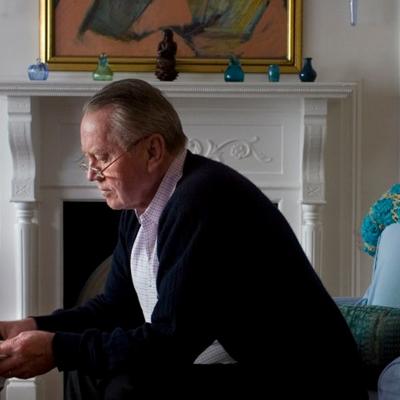Chuck Feeney at a Glance
- Categories: Business > Billionaires, Business
- Net Worth: $0
- Birthdate: Apr 23, 1931 - Oct 9, 2023 (92 years old)
- Birthplace: Elizabeth
- Gender: Male
- Profession: Businessperson
- Nationality: United States of America
What Was Chuck Feeney’s Net Worth? The Billionaire Who Gave It All Away
Introduction: The Philanthropic Legacy of Chuck Feeney
Chuck Feeney’s name may not be as instantly recognizable as some of the world’s wealthiest individuals, but his impact on philanthropy is undeniable. This article delves into the remarkable life of Chuck Feeney, the Irish-American businessman who amassed a fortune exceeding $8 billion yet chose to live a life of modest means, giving away his entire wealth during his lifetime. Often referred to as the “James Bond of Philanthropy” and the “Billionaire Who Wanted to Die Broke,” Feeney’s story is a testament to the power of selfless giving and the transformative potential of strategic philanthropy.
Feeney’s story provides a compelling narrative of wealth, secrecy, and the ultimate purpose of money. His life and actions have influenced some of the most prominent philanthropists of our time, including Bill Gates and Warren Buffett, inspiring them to create The Giving Pledge. This article explores Feeney’s early life, his entrepreneurial journey, the creation of Duty Free Shoppers Group, the subsequent sale of the company, and, most importantly, his commitment to giving away his fortune through the Atlantic Philanthropies. His tale is a powerful reminder of the positive changes that can be made when wealth is used for the benefit of others.
Early Life and Influences
Charles Francis “Chuck” Feeney was born in Elizabeth, New Jersey, in April 1931. His upbringing played a pivotal role in shaping his philanthropic views. Feeney’s formative years were marked by experiences that instilled in him a sense of responsibility and empathy, eventually leading him to become a generous benefactor. He attended St. Mary of the Assumption High School, which he later credited as a source of inspiration for his charitable spirit. In 2016, he honored his alma mater with a substantial donation of $250,000, marking the largest single contribution in the school’s history.
During the Korean War, Feeney served in the Air Force as a radio operator. This period offered him an early glimpse into the world of business, as he began selling duty-free liquor to servicemen in the 1950s. This initial venture would lay the foundation for his future success in the world of international commerce.
After his military service, Feeney utilized the G.I. Bill to attend Cornell University’s School of Hotel Administration. This education would provide him with the essential skills and knowledge necessary to navigate the complex world of business and commerce.
From Duty-Free Pioneer to Global Entrepreneur
Feeney’s career began with a simple, yet groundbreaking, idea. In the 1950s, he and his college roommate, Robert Warren Miller, recognized an untapped market in the sale of duty-free goods to American servicemen stationed around Asia. At the time, the concept of duty-free shopping was relatively unknown, offering a unique opportunity for entrepreneurial innovation.
The partners started by selling liquor and cigars. Their business model was simple: offer high-end goods at discounted prices to travelers who could avoid paying local taxes. This simple concept had a profound impact on the way people shopped while traveling.
Building the Duty Free Shoppers Group Empire
In 1960, Feeney and Miller co-founded the Duty Free Shoppers Group (DFS Group). This marked a significant milestone in their journey, establishing the formal structure for their rapidly expanding business. The company’s initial focus was in Hong Kong, a strategic location for international trade, before quickly expanding into Europe and the rest of the world.
A major breakthrough came in the early 1960s when DFS secured the exclusive right to operate duty-free concessions in Hawaii. This deal proved to be incredibly lucrative, as Japanese travelers, in particular, took advantage of the opportunity to purchase tax-free goods.
Over time, DFS expanded beyond airport locations, opening stores in regular malls, especially in Asia. This broadened the company’s reach, catering to a wider range of customers and creating a more convenient shopping experience. By the 1990s, Feeney and Miller were each receiving $300 million annually in profit dividends, a testament to their company’s success.
The Sale That Exposed a Secret
In 1996, Chuck Feeney and Robert Warren Miller sold DFS to Louis Vuitton Moët Hennessy (LVMH). This transaction marked a pivotal moment in Feeney’s life. His share of the sale amounted to $1.63 billion. However, Feeney would not directly benefit from the massive payout. Unbeknownst to the public, Feeney had already transferred his ownership to a philanthropic foundation.

